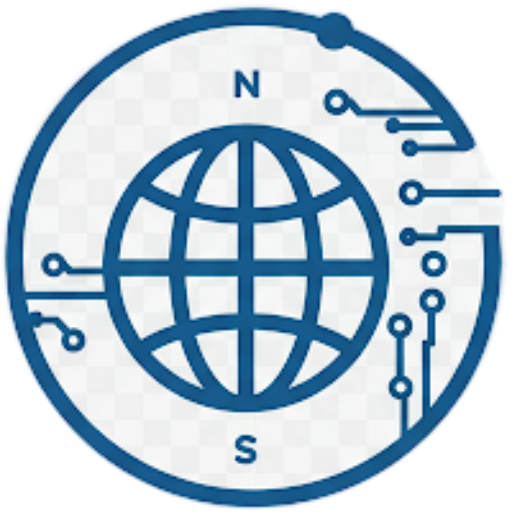The world of tech startups is a whirlwind of innovation, ambition, and, let’s be honest, hype. Every year brings new buzzwords and breakout companies capture headlines. Predicting which specific startup will be the next big thing years down the line is notoriously difficult – fortunes change fast, and market dynamics shift constantly.
However, instead of trying to pick individual winners, we can look at the broader sectors where innovation is buzzing, investment is flowing, and talented founders are tackling significant problems. As we look beyond 2025, several key areas stand out as fertile ground for impactful tech startups. Here are a few sectors to keep your eye on:
1. Applied AI & Automation: Intelligence Everywhere
Artificial Intelligence, particularly Generative AI, has dominated recent conversations. But the next wave is less about general-purpose chatbots and more about Applied AI – specialized AI solutions tailored for specific industries and tasks.
- Why it’s hot: Businesses across all sectors (healthcare, finance, manufacturing, creative industries) are seeking AI to boost productivity, enhance decision-making, personalize customer experiences, and automate complex processes.
- Trends to watch: AI co-pilots assisting professionals, AI-driven scientific discovery (see below), agentic AI performing multi-step tasks, composite AI blending different models, and tools making AI accessible for smaller businesses (democratization of AI).
- Think: Startups creating AI-powered diagnostic tools for doctors, platforms automating software development tasks, or AI systems optimizing factory floor operations.
2. Climate Tech & Sustainability: Solving Planetary Problems
With increasing urgency around climate change and environmental sustainability, Climate Tech is no longer a niche – it’s a necessity attracting significant talent and investment.
- Why it’s hot: Global pressure for decarbonization, regulatory changes, corporate sustainability goals, and consumer demand are driving innovation across energy, materials, food, transportation, and more.
- Trends to watch: Advancements in renewable energy generation and storage (like solid-state batteries, green hydrogen), carbon capture and removal technologies, sustainable materials (bio-alternatives to plastic, sustainable packaging), regenerative agriculture tech, AI for optimizing energy grids, and circular economy platforms.
- Think: Companies developing high-efficiency solar panels, creating biodegradable materials from fungi or algae, building software to manage carbon credits, or designing AI for precision agriculture to reduce resource use.
3. Health Tech & Biotech: The Personalized Revolution
Technology continues to transform healthcare, moving towards more personalized, predictive, and accessible solutions.
- Why it’s hot: Aging populations, rising healthcare costs, and breakthroughs in biology and data science create huge opportunities. The pandemic also accelerated trends like telehealth.
- Trends to watch: AI-powered diagnostics and drug discovery, advanced therapies (like cell and gene therapies – CGTs), personalized medicine based on genomics, telehealth platforms expanding beyond basic consultations, FemTech addressing women’s health needs, wearable sensors for remote monitoring, and tools optimizing hospital operations and staffing.
- Think: Startups using AI to analyze medical images faster than humans, platforms developing bespoke cancer treatments based on genetic profiles, or apps providing AI-driven mental health support.
4. Next-Gen FinTech: Embedding & Enabling Finance
Fintech disrupted traditional banking, and the next phase involves making financial services more integrated, accessible, and intelligent.
- Why it’s hot: Consumers and businesses expect seamless financial experiences embedded within the platforms they already use. Decentralization and AI continue to open new possibilities.
- Trends to watch: Embedded Finance (integrating payments, lending, insurance into non-financial apps/platforms), Real-World Asset Tokenization (fractional ownership of assets like real estate), AI for hyper-personalized financial advice and risk management, digital wallets becoming central hubs, cross-border payment innovations, and microservices enhancing financial inclusion for underserved populations.
- Think: Startups enabling any retailer to offer “buy now, pay later” options easily, platforms tokenizing art or property for investment, or AI tools helping individuals optimize their savings and investments automatically.
5. Advanced Computing & Infrastructure: Powering the Future
Underpinning many of these trends is the need for more powerful, efficient, and specialized computing infrastructure.
- Why it’s hot: The demands of massive AI models, the explosion of data from connected devices, and the need for new computing paradigms create opportunities for foundational innovation.
- Trends to watch: Edge Computing platforms processing data closer to the source (for IoT, autonomous systems), specialized hardware for AI (custom silicon, ASICs), practical applications emerging from Quantum Computing, next-generation cybersecurity solutions (like Cybersecurity Mesh), and infrastructure supporting Web3 and decentralized applications.
- Think: Companies building efficient Edge AI platforms for factories, developing novel quantum algorithms for material science, or creating decentralized identity solutions.
What Makes a Startup Stand Out?
Beyond operating in a hot sector, promising startups typically share common traits: a strong, experienced founding team, technology that solves a real and significant problem, a large addressable market, a clear path to generating revenue, and the ability to adapt quickly.
The startup landscape is inherently dynamic. While these sectors show immense promise for the coming years, the specific companies leading the charge will continue to emerge and evolve. Watching these spaces is not just about spotting potential investments; it’s about witnessing the cutting edge of innovation and how technology is shaping our future.



